Outdoor living room mistakes – 5 errors to avoid, and the tips garden designers use to get it right
In the summer months, treat your backyard as an extension of your home by creating relaxing, sociable spaces for family meals, informal drinks with friends, or a spot of daydreaming. Here's how to get it right...
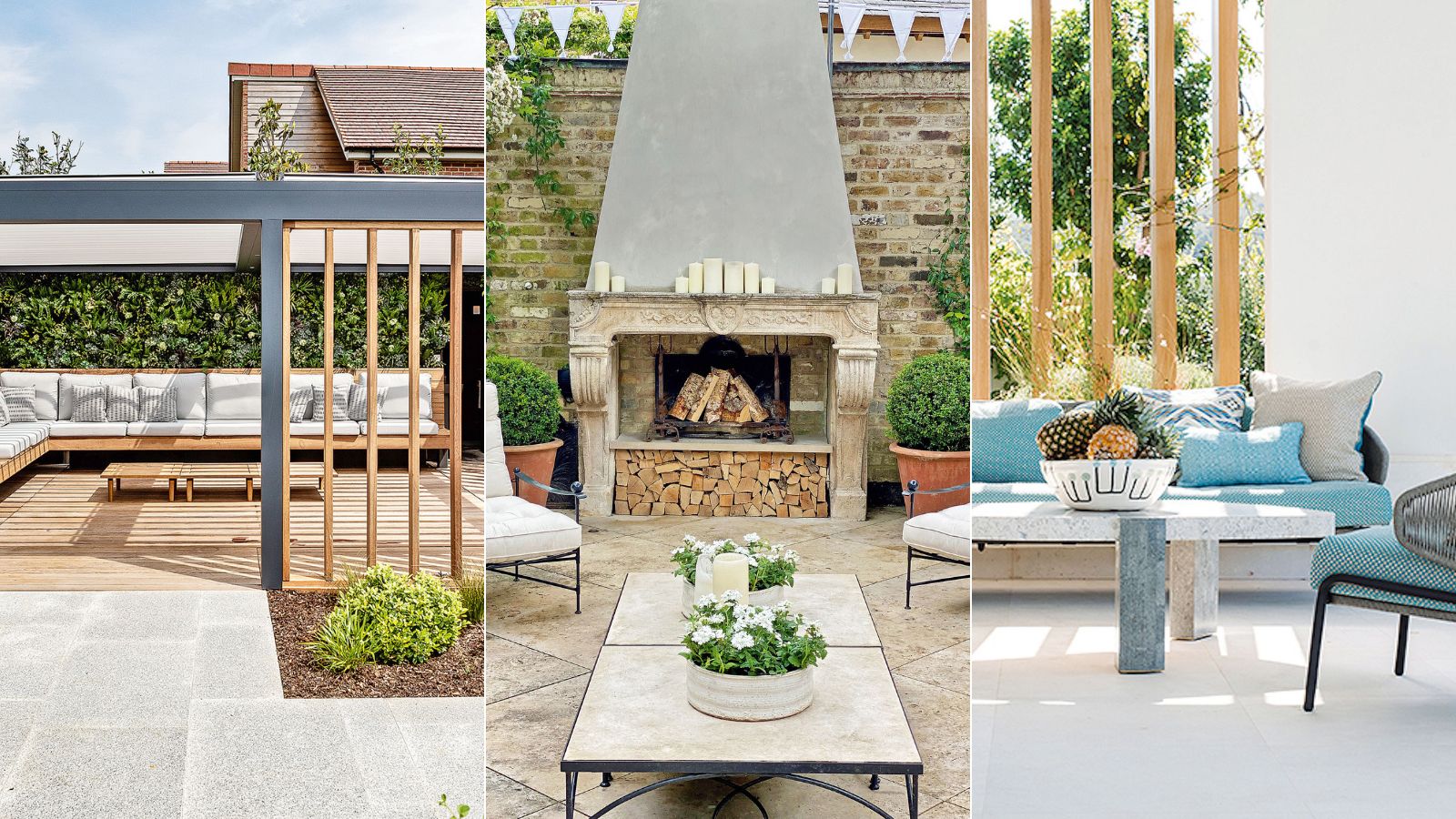

Arabella Youens
Backyards deserve to be decorated with the same love and attention as other rooms in the house, but it is all too easy to make mistakes when designing an outdoor living room.
Until we turned our backyards into extensions of our homes, we may have ventured to sit outside only when entertaining guests or for a relaxing hour at the weekend. Now we want to use our outdoor living space year-round and every day if the weather allows.
If you want to get it right – the first time – all it takes is a little planning, design know-how, and expert advice.
Outdoor living room mistakes
There are tons of outdoor living room ideas and tricks of the trade to help turn an unused or unloved backyard or garden room into something stylish and sophisticated, whatever its shape and proportions.
So whether you're working with a small backyard, courtyard, or patio, you can avoid making these common outdoor living room mistakes.
1. Not making the most of architectural features
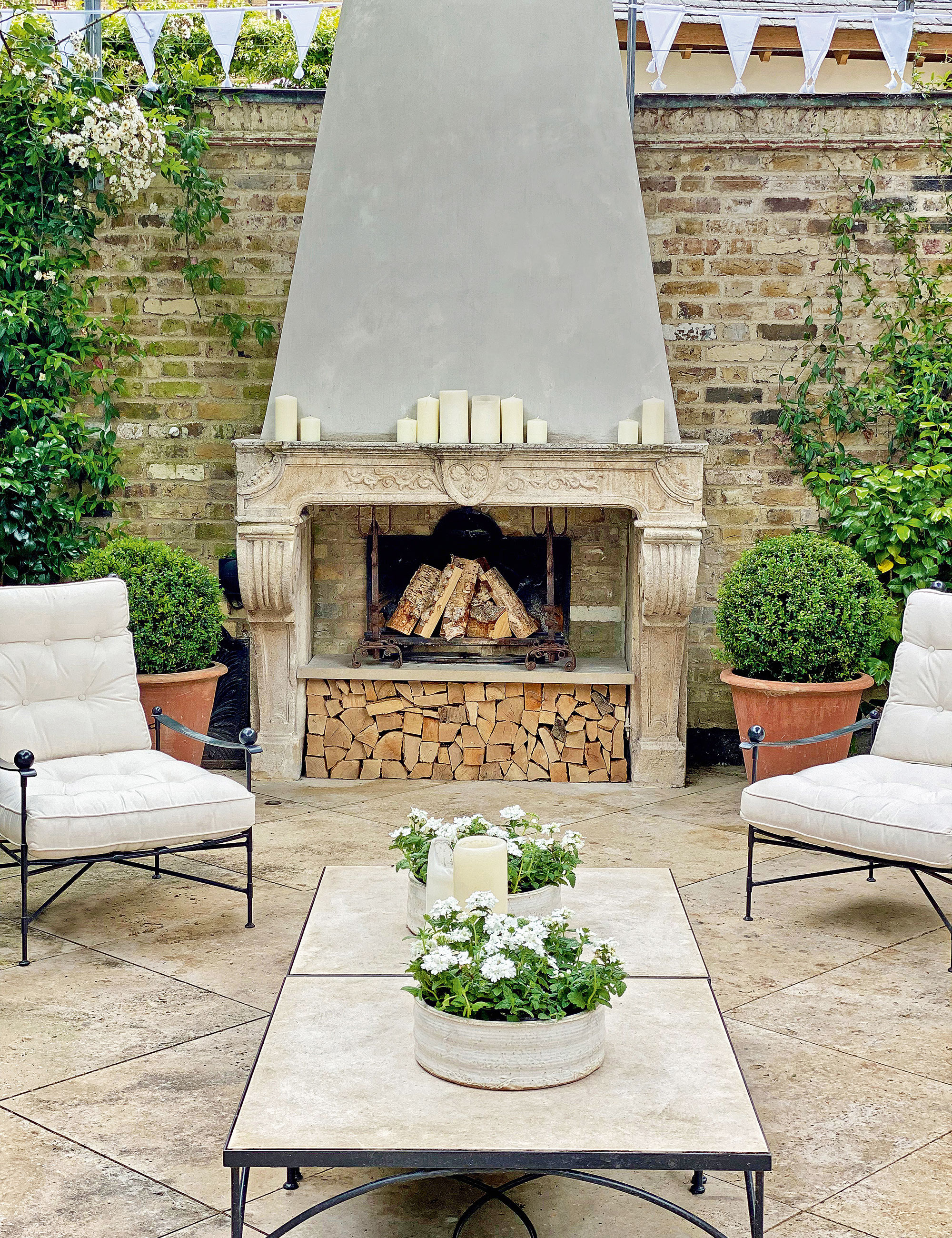
Architectural features are ripe for decoration and design, so don't ignore their potential.
An outdoor fireplace with a chimney adds an architectural feature to a garden while also being somewhere to linger near when the nights are chillier, thereby extending the use of the space from spring into fall. This is the London home of interior designer Alison Henry where a gas fireplace has an antique surround.
‘It’s somewhere we gather for warmth in the evening with seats in outdoor fabric which can be left out in all weather,’ says Alison. ‘I created an extension of the indoor space outdoors and considered it as an additional room, not only in the selection of finishes, color scheme, and furnishings but also the lighting to create the various moods for different times of the year and functions.’
2. Not thinking of your backyard as a social space
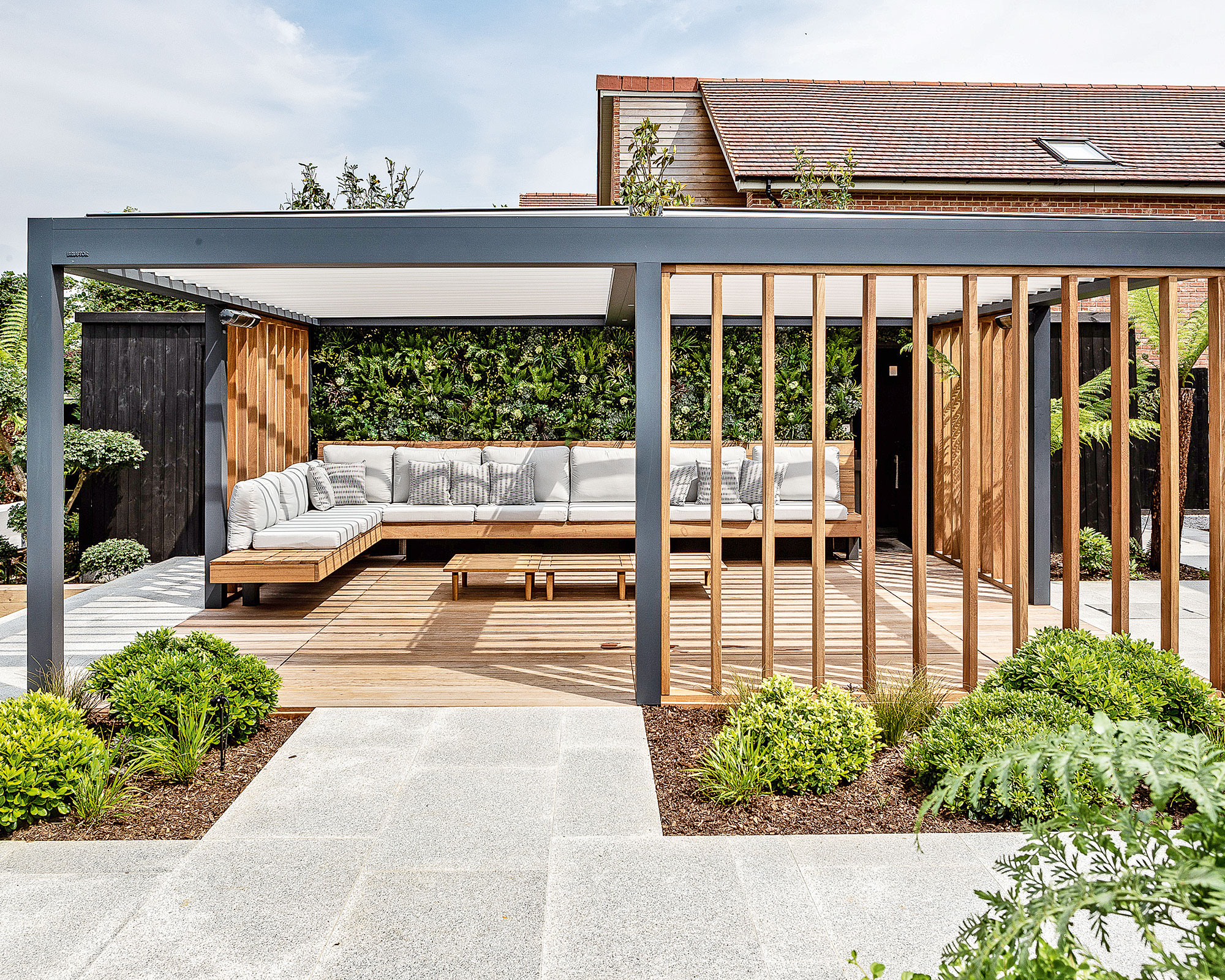
A backyard should be loved and enjoyed, which is why it is vital to plan with entertainment in mind.
With the increasing appetite for outdoor kitchens comes the need for a shaded place to eat and entertain in summer while providing a source of heat for cooler days and nights. The team at HollandGreen designed this contemporary pergola to meet such demands. An automated louvered roof allows the slants of sunlight to travel through on summer days while integrated heaters provide warmth when temperatures drop.
‘We were asked to design a Balinese-inspired spa garden,’ explains Mark Latchford, director of HollandGreen Landscapes. The result boasts a 14-seater hot tub below a ‘James Bond-style sliding deck’, alongside an outdoor kitchen, 12-seater bar, wood-burning pizza oven and a barbecue. ‘The idea was to have multifunctional spaces that could be used all year round providing a central hub for entertaining.’
3. Not considering your outdoor space as an extension of your home
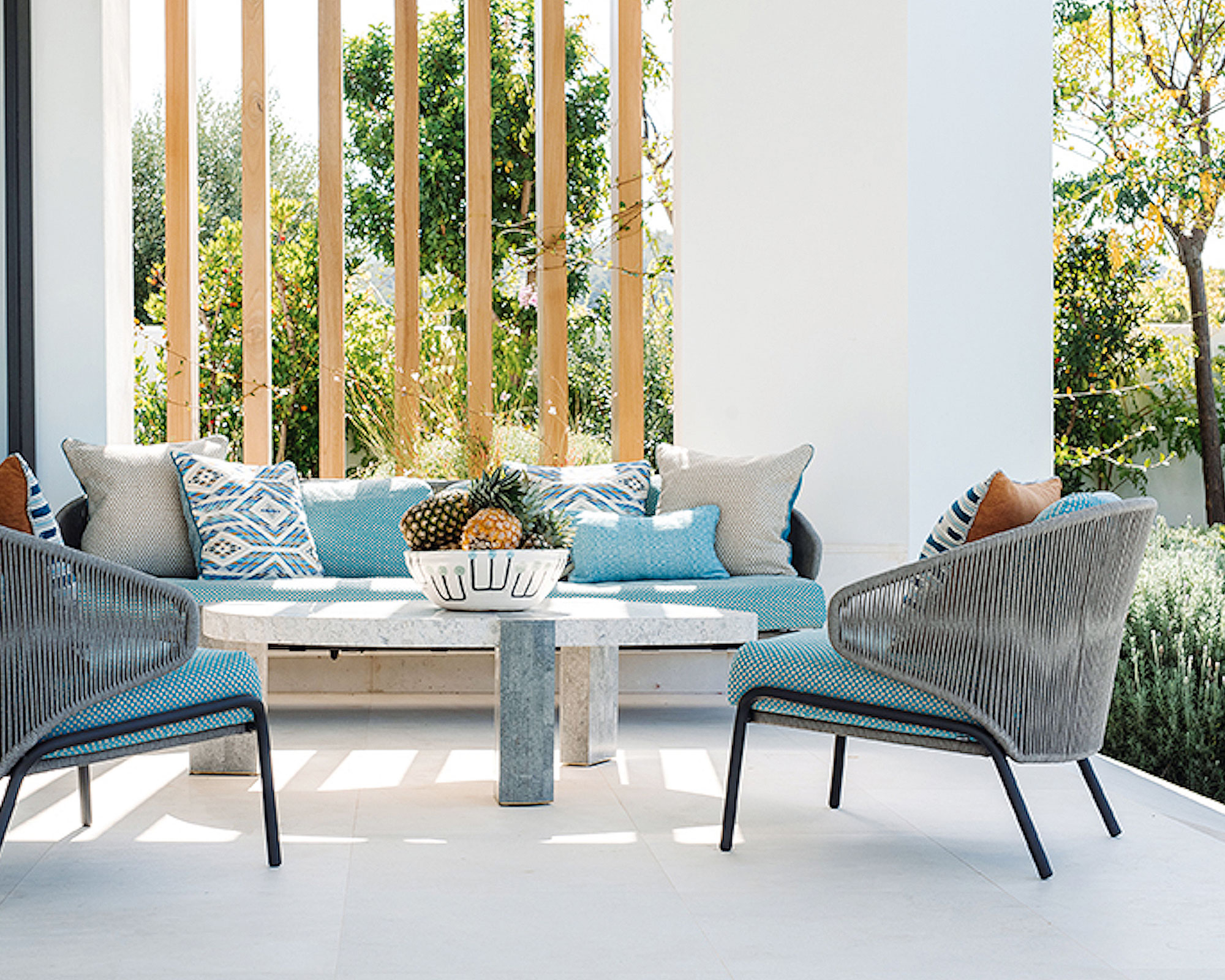
Thinking about your outdoor living room in isolation can lead to a disjointed space.
Contemporary architecture lends itself to creating the perfect hybrid indoor/outdoor spaces. With its imaginative use of materials, eye-catching designs and clever feats of engineering, the results are striking and inviting constructions.
The Miami- and London-based interior designer Natalia Miyar says she has always gravitated towards the outdoors. For this terrace in Ibiza, Natalia wanted to furnish it with colors that reflected the electric shades of blue seen in the sea and sky. ‘I advocate for taking a playful approach to outdoor spaces: comfort and good design should be prioritized to result in an inviting and relaxed spot.’
4. Not factoring weather conditions when choosing furniture or planting
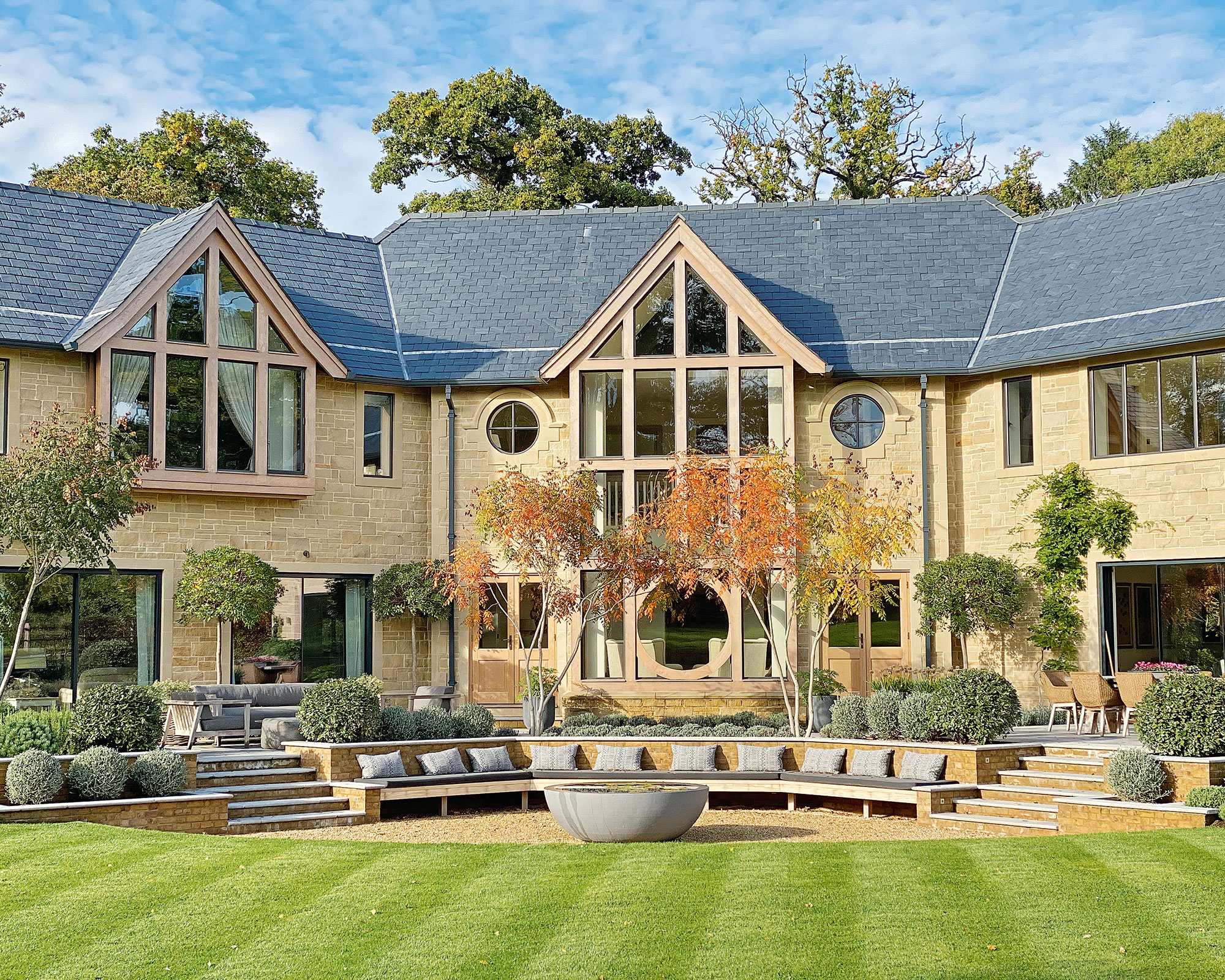
The best outdoor furniture, such as backyard sofas create social spaces within the garden but they work best when they are protected from wind and weather. When planning hard landscaping, consider integrating some seating into the terrace or raised beds; the result will cocoon the seating, while planting some sweet-smelling flowers or herbs on the higher level will create an atmospheric aroma.
Garden designer Claire Merriman scaled this idea up for this country house which features a huge crescent-shaped bench – large enough to sit 10 or more – into the expansive terrace. Claire planted Koelreuteria paniculata trees, which suit the south-facing aspect and provide shade over the seating area when it’s needed.
5. Not planning for light and shade elements
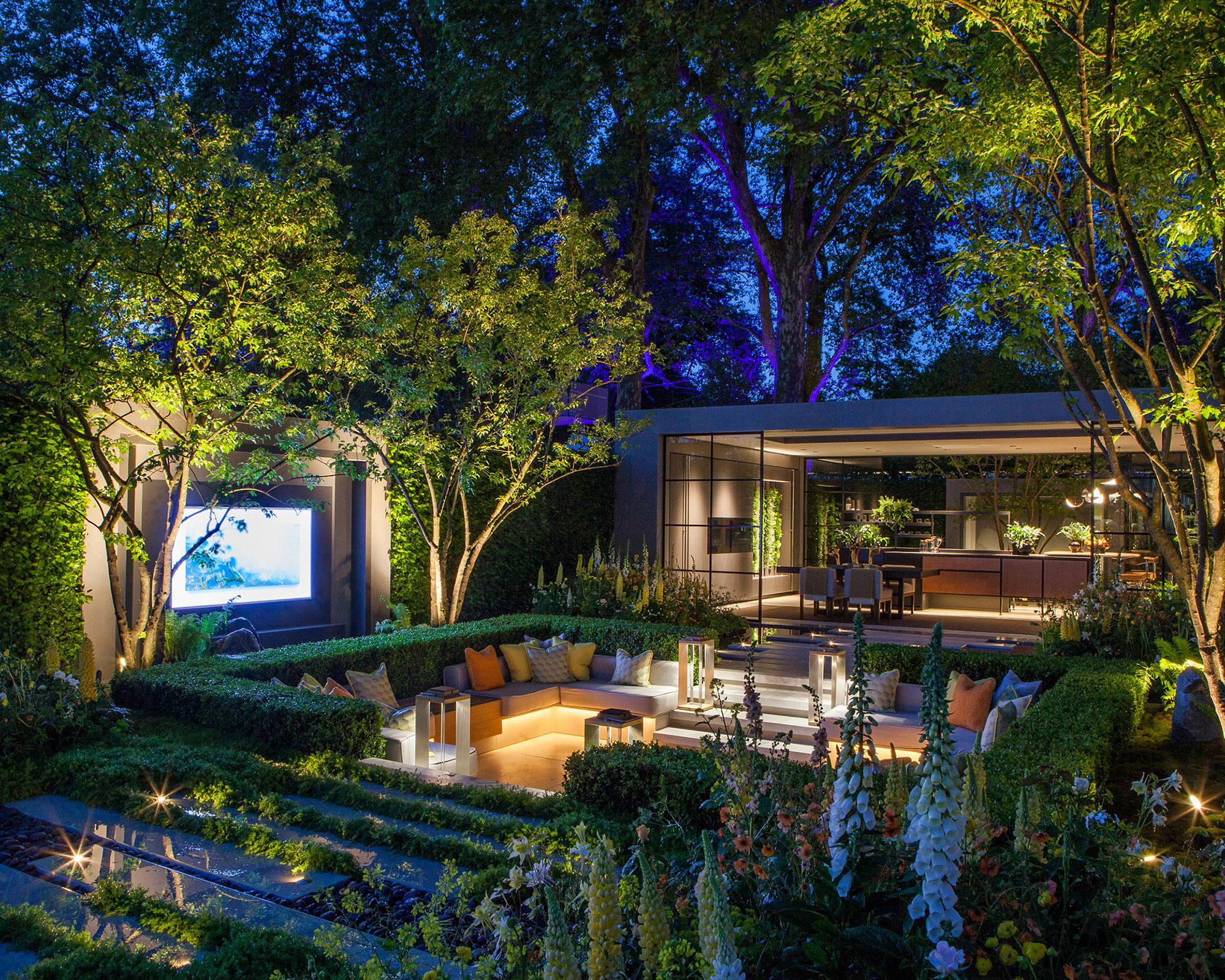
Lighting and texture in the backyard or outdoor living room are worth due consideration, says garden and landscape architect John Wyer.
‘We never put dining areas in full sun, for example, as it’s just too hot to eat. West-facing spots are ideal as they benefit from the evening sun and stay warm after it has set.’
Depending on where you are based – east or west coast – you may find yourself only using your outdoor living room for part of the year, so you'll want to ensure that it can still be enjoyed when looking out from the inside. To do so, choose plants that offer lots of structure and year-round seasonal interest, he adds.
Also try to plan a lighting scheme that works well at dusk as this will be one of the best times to take advantage of the space. To do this, add a wash of light with a selection of spiked LEDs to the surrounding planting to show off colors, says Sally Storey, creative director of John Cullen Lighting. ‘These can be repositioned as the planting grows,’ she explains.
There's something truly magical about dining alfresco immersed in nature. If you love entertaining outdoors then consider adding garden screening and privacy to your outdoor living room to create a secluded outdoor dining space. Invest in plenty of comfortable, weather-proof outdoor seating to ensure that you and your guests feel welcome and warm.
Sign up to the Homes & Gardens newsletter
Design expertise in your inbox – from inspiring decorating ideas and beautiful celebrity homes to practical gardening advice and shopping round-ups.

Jennifer is the Digital Editor at Homes & Gardens. Having worked in the interiors industry for several years in both the US and UK, spanning many publications, she now hones her digital prowess on the 'best interiors website' in the world. Multi-skilled, Jennifer has worked in PR and marketing and occasionally dabbles in the social media, commercial, and the e-commerce space. Over the years, she has written about every area of the home, from compiling houses designed by some of the best interior designers in the world to sourcing celebrity homes, reviewing appliances, and even writing a few news stories or two.
- Arabella YouensContributing Editor
-
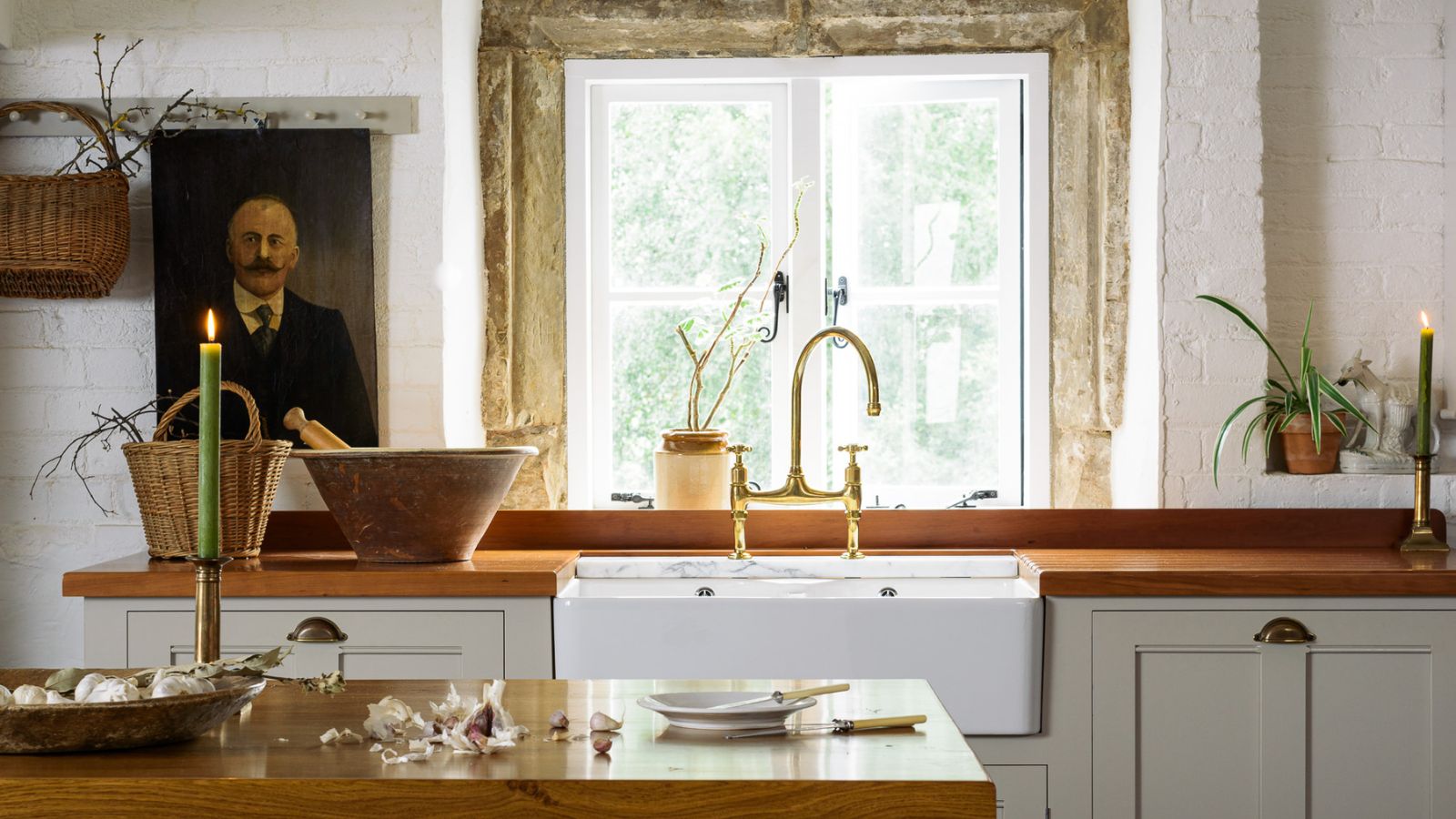 This simple marble hack elevates my budget-friendly wooden kitchen countertops and prevents the dreaded water damage for way less than you’d think
This simple marble hack elevates my budget-friendly wooden kitchen countertops and prevents the dreaded water damage for way less than you’d thinkThis design trick looks expensive, solves a problem, and was the easiest decision I made during my kitchen reno
By Charlotte Olby Published
-
 Emily Blunt gifted Cillian Murphy this $545 pillow – she's 'obsessed' with these luxury pillows, and frankly, so are we
Emily Blunt gifted Cillian Murphy this $545 pillow – she's 'obsessed' with these luxury pillows, and frankly, so are weThe Oppenheimer stars sleep on this ultra-luxe goose down pillow – here's why we love it – plus our affordable alternatives from $35
By Sophie Edwards Published